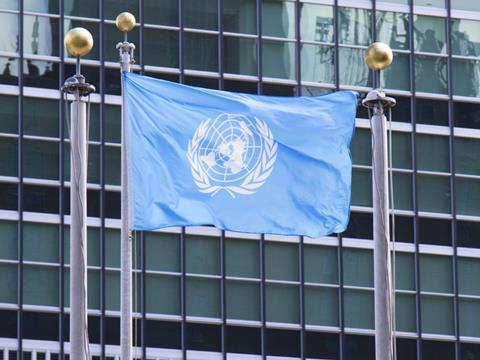
The Ellen MacArthur Foundation has called for the incoming Global Plastics Treaty to establish legally binding global rules and factor in the reduction, redesign, and reuse of plastic materials in response to a second round of negotiations taking place last week.
INC-2 – the second round of negotiations held by the Intergovernmental Negotiation Committee – was hosted at the UNESCO headquarters in Paris last week. Attended by 700 Member State delegates from 169 Member States and over 900 observers from various NGOs, it discussed voting rights and an agreement on an interpretive paragraph for the Draft Rules of Procedure.
Further topics of conversation included the establishment of consistent, legally binding rules throughout the life cycle of plastics – many attendees called for the development of mandatory global guidelines to drive progress across the world – as well as a ban or phase-out for harmful materials and substances used in plastics production. Excessive production and consumption and irresponsible management of plastic waste are now hoped to be eradicated, with reuse and recycling solutions generally promoted as next steps.
In an exclusive statement to Packaging Europe, the Ellen MacArthur Foundation said: “To be effective in tackling plastic pollution, the treaty needs to be based on comprehensive circular economy measures including reduction, redesign and reuse and on legally binding global rules. These are critical to drive change at global scale to end plastic pollution.
“We are encouraged that more than 130 member states taking part in the negotiations in Paris during the second round of Intergovernmental Negotiation Committee (INC-2) expressed support for globally binding rules. These are vital to effectively drive systems’ change by stimulating the required levels of investment and innovation.
“We welcome the progress made in the negotiations in Paris and the agreement by the Member States to develop a first version of the treaty text (a “zero-draft”) which will form the basis for the negotiations taking place at INC-3 in Kenya later in the year. The first draft of the treaty must reflect the ambition shown by many governments last week and include obligations and measures that drive reduction and innovation upstream because we can’t recycle our way out of the plastic crisis.
“This treaty is a unique opportunity to drive global policy action and tackle plastic pollution and we remain committed to supporting the negotiations in the best way we can.”
Georgia, Estonia, Sweden, and the US were elected to the Bureau on the first day of the session, while Japan, Gabon, and Mauritius became the newest members of the High Ambition Coalition to End Plastic Pollution. The Secretariat is now inviting submissions from both Members and observers to establish further points of discussion for INC-3, which will take place in Nairobi later this year.
As agreed at the UN Environmental Assembly (UNEA) in March 2022, INCs are to be held every six months. Stakeholders in business, science, academia, and civil society are set to be platformed to express their views on the treaty’s contents and how far its legal powers should extend.
In its own reaction to the negotiations, though, WWF noted that many scientists and civil society delegates attending the event could not take part in the negotiations themselves. While it generally approved of the progress made, it also condemned some Member States for utilising what it refers to as ‘delaying tactics’ – alleging that they were attempting to stall voting and threaten the treaty’s progress.
Before the event, Unilever identified the prevention of plastic leakage, harmonised global regulation, and the wider implementation of EPR schemes as its own priorities. It also underlined the often overlooked role of local waste collectors and waste pickers as representatives from the informal sector.
If you liked this article, you might also enjoy:
McKinsey on whether or not on-pack sustainability claims affect consumer spending
A deep dive into the most important packaging sustainability trends and solutions














No comments yet